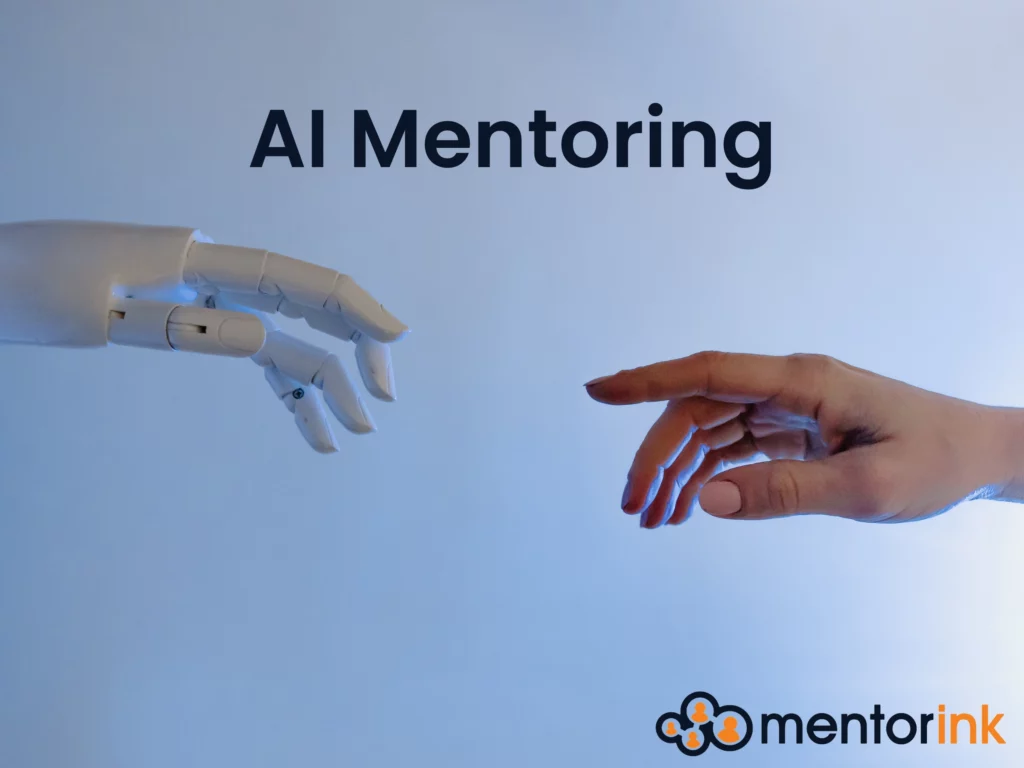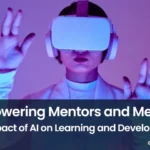
A significant part of the technological developments that have accelerated in recent years is the contribution made to artificial intelligence. As technology advances, the use of AI for mentoring will increase. This mentoring type can be considered a new way to help people grow. Also it mainly uses AI to give guidance, support, and feedback to individuals. This new field could change how mentoring is done by offering personalized and scalable solutions for many different people.
What is AI Mentoring?
AI mentoring combines AI with traditional mentoring. In this way, AI can behave like a mentor, and mentees can easily benefit from this mentoring type in the same way as in classical mentoring. Those platforms help mentees by analyzing data, identifying their needs, and providing advice and resources. Also, it can offer personalized advice at any time, anywhere.
The AI system is provided with large amounts of data to comprehend various scenarios, obstacles, and learning styles. These models are being upgraded to provide better guidance. AI mentorship may help with a variety of issues, including job growth, skill training, emotional support, and motivation.
What are the Advantages of AI Mentorship?
AI mentoring, which can be considered a fairly new type of mentoring, offers mentees the opportunity to have a new mentor with many different benefits.
- Scalability
It can serve an infinite number of mentees, making it appropriate for huge organizations and educational institutions. Having a large pool of mentees, ai mentoring can provide more detailed and complex advice to mentees with the learning structure of artificial intelligence.
- 24/7 Availability
Unlike traditional mentors, those services are available all of the time, assisting mentees whenever they need it. When you are faced with important decisions, you can reach your AI mentor in a few minutes with your mobile device.
- Personalization
AI mentoring relies on the analysis of data to personalize the mentoring experience to each mentee’s particular needs, objectives, and preferences, leading to a more successful mentoring process.
- Consistency
AI mentorship guarantees steady standards and recommendations without human biases or inconsistencies. In addition, the AI’s ability to learn will allow it to give you more coherent sentences than you might expect after a while.
- Cost-Friendly
AI mentorship is more cost-effective than traditional mentoring and requires fewer human resources. If you are new to mentoring, this may be a more affordable option for you to understand what mentoring is all about.
What are the Challenges of AI Mentoring?
Despite its numerous advantages, Artificial mentorship also faces several challenges. Since artificial mentorship is a new field, some disadvantages are assumed to be due to this, and as a result, people may struggle to learn about AI and fully understand its limitations.
AI Mentoring is Deprived of Emotion
Mentorship is not about just giving advice about certain situations.This cannot understand human feelings, which makes it difficult to be empathetic. Therefore, mentees may feel that they are not sufficiently understood when they receive help from it.
Privacy
AI mentorship platforms require access to personal data, which raises privacy and security concerns. Of course, developers are trying to improve this area of artificial intelligence day by day to protect personal data.
AI Mentorship Programs Can Be Difficult to Understand Complex Issues
AI mentoring softwares may not understand complex situations. Clearer questions or problems can make it easier for ai mentor programs to understand and solve.
However, as complexity increases, problem solving may become inefficient. Also, AI systems can inadvertently perpetuate biases present in the data they were trained on, potentially leading to biased advice in it.
Technical Limitations
The quality of AI mentoring systems depends on the quality of their algorithms. Current AI technology may not yet be as good as human mentors.
AI mentoring can be seen as a revolutionary method that is fast gaining momentum in the mentoring field. AI mentorship program uses AI to give scalable, customized, and data-driven support to mentees who come from different backgrounds. However, it is not without drawbacks, such as a lack of human empathy, privacy problems, and possible biases.
As it evolves, it has the potential to supplement traditional mentoring approaches, providing a crucial tool for personal and professional development. As artificial intelligence advances, this is expected to play a larger role in influencing the future of mentoring. And it can serve as a career mentor.


